Despite the technological strides being routinely taken in the online space, cybersecurity is still a major concern for consumers and businesses worldwide.
Still, a lot of startups, solopreneurs, and small businesses fall victim to a false sense of security.
If you’re not a big-name brand like Sony, Equifax, or Uber, no one would target you with a cyber-attack, right?
What if I told you that dirty competitors can—at any time—launch a DDoS attack on your website for as little as $10 per hour?
It’s a common mistake for businesses to be complacent when it comes to cybersecurity. That’s why, in this post, we will outline the top benefits of investing in cybersecurity measures that are more than accessible even to startups on a budget.
Let’s begin.
1. Peace of Mind
First and foremost, cybersecurity can improve your productivity in a sense that it allows you to grow your business with confidence.
A cybersecurity breach can cost businesses hundreds of dollars per stolen or lost record — not to mention the damage it can do to your reputation, which may be irreversible depending on the magnitude of the cyber-attack.
The good news is, there are several tools and platforms out there that can protect you against most forms of cyber-attacks.
Content management systems like WordPress are loaded with free plugins that can help your data stay safe without spending a fortune.
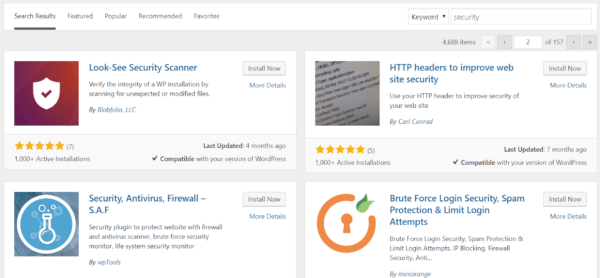
Of course, none of these plugins are meant to be substitutes for comprehensive solutions that can cover all the security needs of established businesses.
Bulletproof, for example, is an all-around security service that not only protects your business from vulnerabilities — it also allows you to breeze through General Data Protection Regulation or GDPR compliance, which is essential if you collect, handle, and utilize customer data for marketing purposes.
2. Build Buyer Confidence
If you run an e-commerce business, cybersecurity is one of the keys to unlocking higher conversion rates on your digital storefront.
There are several user experience factors and page elements customers need before they can commit to a purchase decision. One example is the presence of security badges that ensure their information’s utmost privacy and safety.
You can get trust badges from SSL certification companies like GeoTrust and payment processors like PayPal.
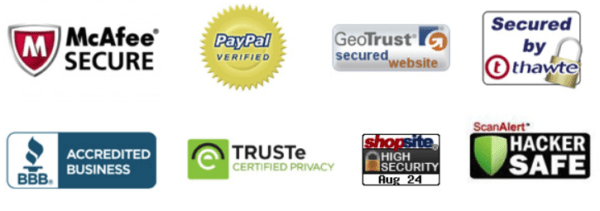
According to statistics, concerns about payment security are among the top reasons why customers abandon their online shopping carts.
With security badges, you can prove to customers that they have nothing to worry about — their data is in good hands.
3. Increase Search Engine Rankings
The lack of cybersecurity can start a chain of events that may affect your website’s search engine rankings in many ways.
Keep in mind that SEO or search engine optimization takes into account multiple factors to evaluate a website’s ranking potential. This includes your target keyword strategy, website uptime, and the traffic your content can generate.
A cyber-attack can cause extended downtimes that can render your website inaccessible to search engine crawlers — disrupting the indexing process and often leading to a drop in search engine rankings.
Downtimes would also directly impact the experience of your visitors, encouraging them to look elsewhere for the information or products they need. This would inevitably reduce your organic traffic, which is one of the core components of a long-term SEO maintenance strategy.
Lastly, cyber-attacks can also affect another crucial SEO ranking factor — your website’s loading speed.
This leads us to the next advantage of having robust cybersecurity on your website.
4. Higher Conversions
In addition to higher buyer confidence and more sustained traffic through SEO, a secure website is also capable of delivering top-notch performance for users.
Statistics show that 40 percent of users would abandon a website that takes over three short seconds to load — a problem that’s worse on mobile sites where 53 percent of users would have left by then.
In other words, you could be missing out on around half of your website’s potential revenue just because you failed to give them a smooth browsing experience.
On the plus side, cyber threats that can slow down a website, such as DDoS attacks and malware infections, may easily be prevented with a handful of security software. This includes web application firewalls, content delivery networks, and antivirus applications.
To further improve your website’s performance, you can head over to a performance optimization platform like Google PageSpeed Insights for specific steps on how to improve your website’s performance.
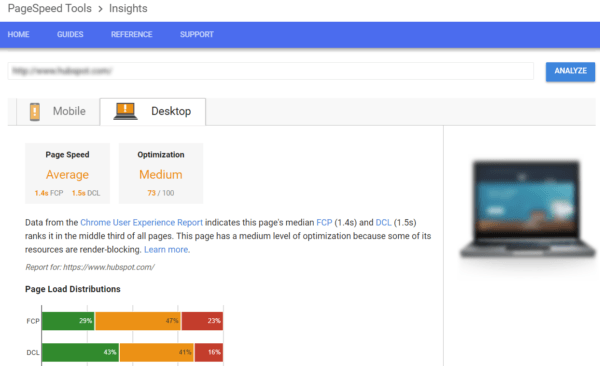
5. More Flexibility with Freelancers
As a small business or solopreneur, there comes a time when you need to acquire more manpower to accomplish your goals.
However, you need to be careful when outsourcing freelancers who need to get administrative privileges to your website.
Even if you manage to hire someone trustworthy, there’s still a chance your communication might be compromised, especially if they have the tendency to work in coffee shops, libraries, and other places via public WiFi networks — which a lot of freelancers are observed to do.
An obvious solution, of course, is to build an in-house team and enforce workplace security policies. But if you currently don’t have the resources for this, an alternative is to require freelancers to connect through a virtual private network or VPN.
Put simply, a VPN functions like a “tunnel” that keeps online communications encrypted and masks your IP address for anonymity.
Some of the top VPN services you should consider are:
There are also secure messaging platforms like Telegram and WhatsApp that can protect online communications using end-to-end encryption.
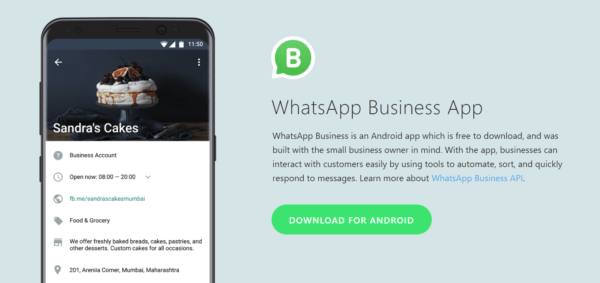
Conclusion
Cybersecurity is one aspect of doing online business that people tend to overlook.
On top of the potential costs of cybersecurity breaches, the reasons above should be enough to convince anyone that website security is no longer optional. Remember, if the stability and growth of your online endeavor is on the line, then you can never be too safe.
If you have any questions, suggestions, or concerns about what you’ve read, feel free to leave a comment below.
- Building Security for a World That’s Already Changed - December 19, 2025
- Cybersecurity’s Quiet Revolution: What We’re Missing While Chasing the Hype - December 18, 2025
- Semperis Confronts the Identity Chaos Exposed by AI Search - December 11, 2025

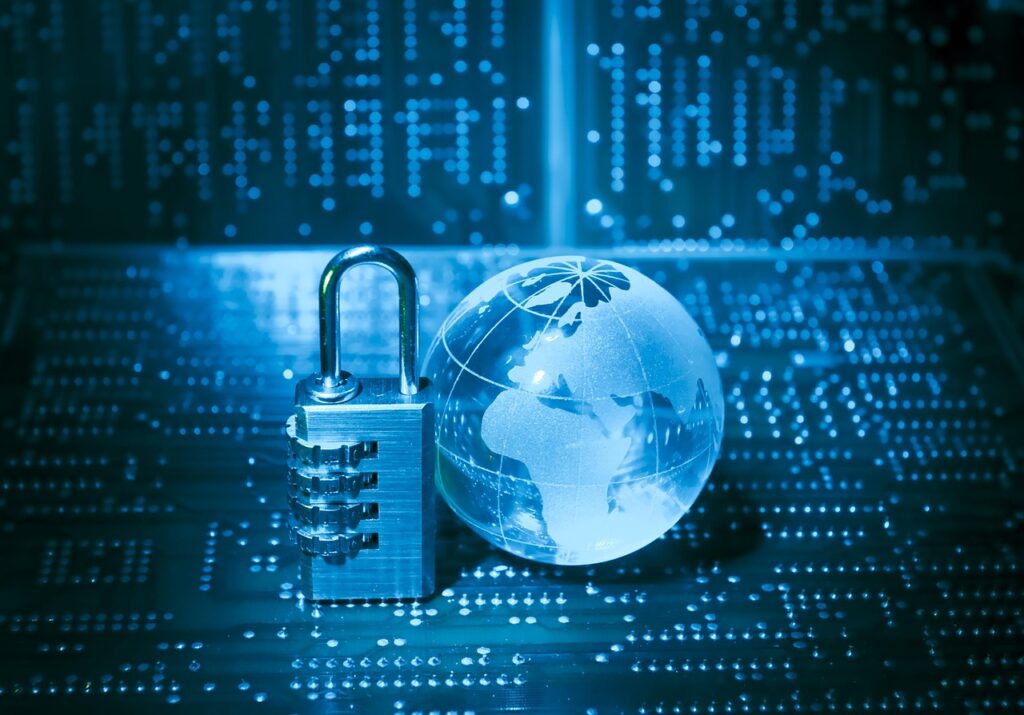


VPN is a must for securing your online activities. Moreover if you are an IT company you need purevpn dedicated ip vpn for whitelisting one time to access database. Dedicated ip gives you same ip location unlike shared ip address.
Since I spend most of my work days coding out of the office, NordVPN has become a handy tool which I’m using every day. Most often I’m working with public wi-fi network because I’m operating remotely from hotels, coffee shops or airports all around the world and how you know everyone can connect to public wi-fi especially hackers and it’s can be risky for your personal data.